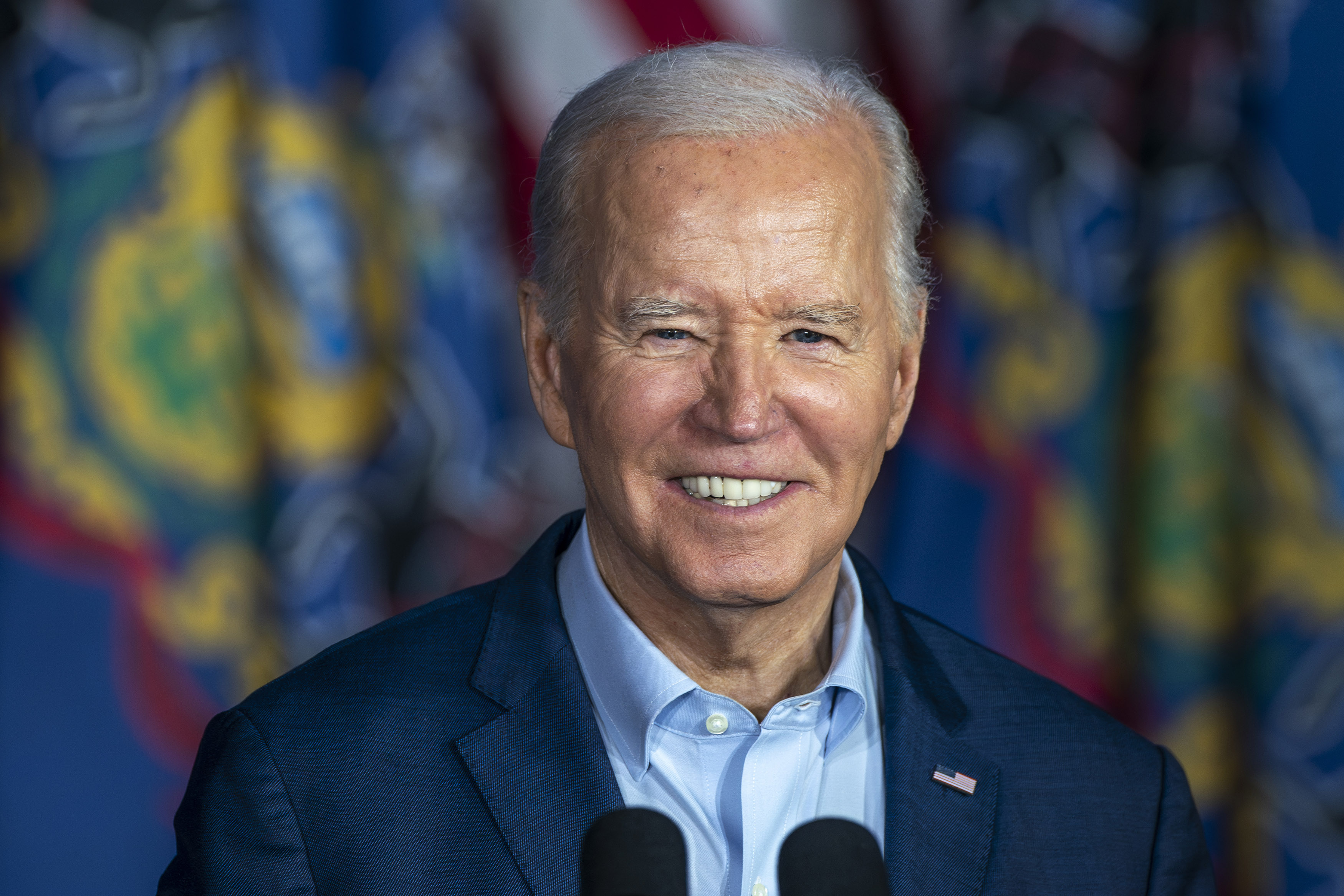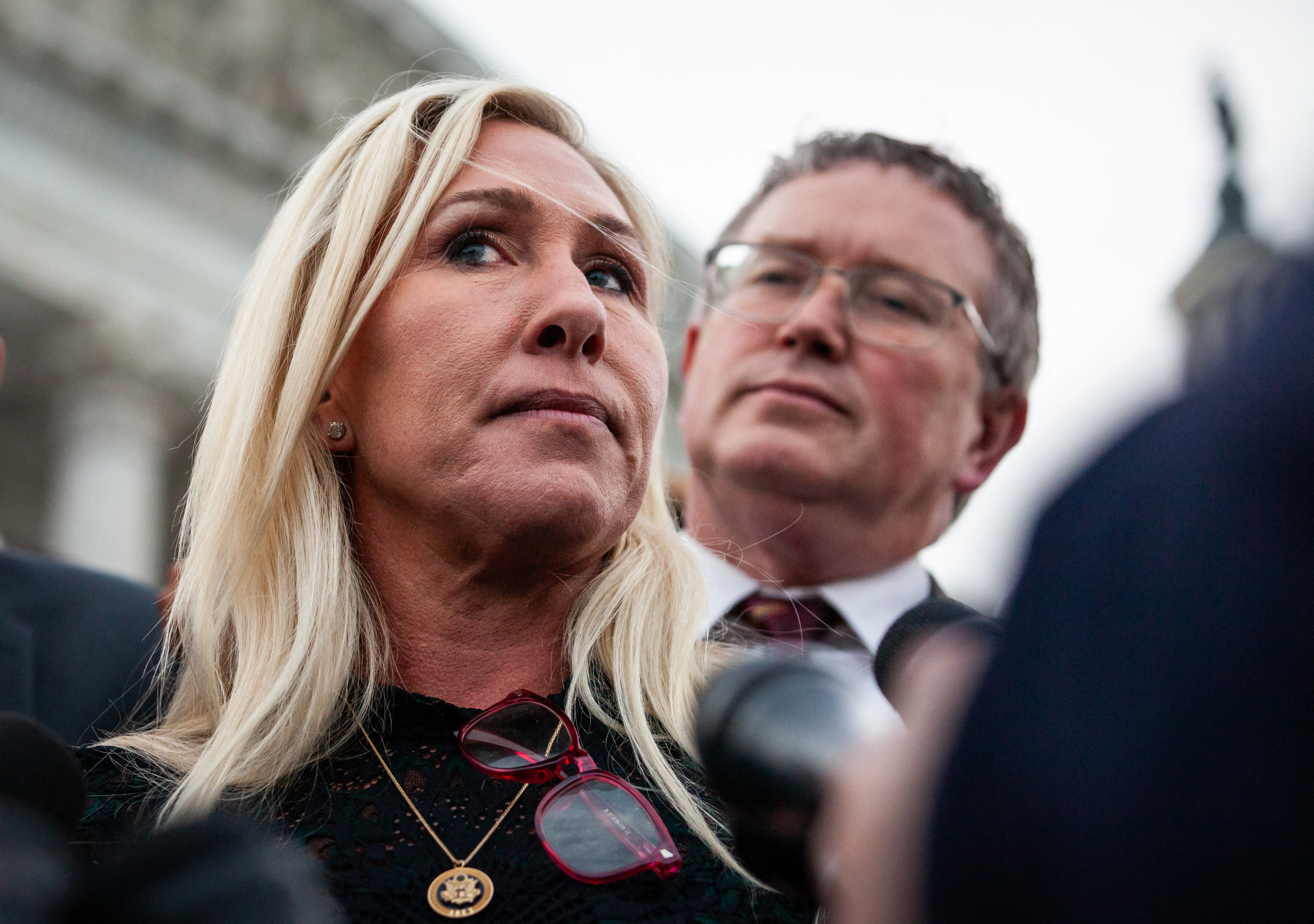Whatever her merits as the next Supreme Court justice, Elena Kagan's selection provides a hidden benefit for President Obama's national-security team: it significantly boosts its chances of prevailing in controversial claims to the court involving the war on terrorism.
The reason: Kagan will inevitably have to recuse herself from an array of cases where she has already signed off on positions staked out by the Obama administration relating to the detention of terror suspects and the reach of executive power. As a result, the seat occupied by Justice John Paul Stevens—the most forceful advocate on the court for curbing presidential power—will be replaced by a justice who, on some major cases over the next few years, won't be voting at all.
"If you are litigating on behalf of Bagram detainees, the skies just got a lot darker today," said Ben Wittes, a legal-affairs analyst at the Brookings Institution.
As solicitor general last year, Kagan's name is on a brief to a U.S. appellate court arguing that the administration should not have to grant any habeas rights to prisoners at the U.S. military facility at Bagram, even if they were captured thousands of miles from the battlefield and then flown to Afghanistan.
Kagan has also presided over the solicitor general's office while it has crafted Obama administration briefs asserting that the U.S. government has the authority to invoke the "state-secrets privilege" to summarily shut down lawsuits alleging abuses in national-security programs, such as allegations that prisoners in CIA custody were tortured or that President Bush's warrantless wiretapping violated the law, without having any evidence heard by a court.
For this reason, some liberal groups Monday were disheartened and even critical of the Kagan selection, contending she has been as zealous a proponent of executive power as some of her predecessors during the Bush administration. "Solicitor General Elena Kagan's record indicates a troubling support for expanding presidential powers," said Vince Warren, executive director of the Center for Constitutional Rights, which has battled with the Obama administration in a broad range of cases involving the rights of terror suspects.
To be sure, the constitutional arguments made Kagan's office in the past year and a half have been more nuanced than the most sweeping claims asserted during the early years of Bush's presidency. Moreover, as many of Kagan's defenders have already argued, her briefs as solicitor general (where her job is to vigorously represent the interests of her client, in this case the U.S. government) are not necessarily a guide to how she would actually vote as a Supreme Court justice.
But the practical implications of Kagan's selection for the Obama team are still very real: although there has been a vigorous dispute over precisely how many cases Kagan would have to recuse herself from, she would certainly have to do so in those—such as those involving prisoners at Bagram—where she has already signed a brief submitted by the government.
She would also most likely have to recuse herself from many others—including those involving state-secret claims and the legal rights of Guantánamo detainees—where she has "personally participated" in decisions by her office to file briefs even if her name does not appear on them, said Tom Goldstein, a Washington appellate lawyer who writes the Scotus Blog.
In effect, the "liberal" side just lost a vote and arguably a crucial one on a court that on major issues of executive power has been narrowly divided.
"If this is a Machiavellian move [by the White House], it's a stroke of brilliance," says Wittes, the Brookings scholar. "This is definitely a situation where the president will reap some benefit in a lot of cases without paying the price to his base that he would have paid had he appointed somebody who would actually have voted his way."
Wittes emphasized that he doesn't believe for a moment that this was a reason why President Obama picked Kagan for the court. But the bonus benefits for his national-security team are hard to underestimate: While the Supreme Court voted five to four in Boumediene v. Bush to grant habeas rights to Guantánamo detainees, allowing them to challenge their incarceration in federal court, the court has yet to speak on whether those same rights apply to terror suspects held elsewhere around the world—a particularly big issue as the "battlefield" in the war against Al Qaeda keeps expanding to places like northwest Pakistan, Yemen, Somalia, and elsewhere.
U.S. District Court Judge John Bates (a Bush appointee) ruled last year that habeas rights do apply—at least when it came to three detainees who were captured outside Afghanistan and then flown to the U.S. military base in Bagram. One of them, Amin al-Bakri, appears to have had no connection to the war in Afghanistan at all: he is a Yemeni citizen who was captured in Thailand in 2002 and has been held in U.S. custody ever since, making him functionally no different than those were being held at Guantánamo for years, according to court filings by his lawyers in the case.
Since then, the Obama administration has filed an appeal with the U.S. Court of Appeals in the District of Columbia (on which Kagan's name appears) asking it reverse Bates' ruling. The brief contended that the Boumediene decision applies only to Guantanamo and that "the question of where to hold detainees is foremost a military judgment"—not one for the courts.
The court of appeals has yet to rule, so the case (a big one for the Obama administration) is at least a year away from making it up to the Supreme Court. But when it ultimately does, the court will be minus one justice who could have been counted on to be sharply skeptical of the adminsitration's claims—and replaced by another who will be asking no questions at all.
Uncommon Knowledge
Newsweek is committed to challenging conventional wisdom and finding connections in the search for common ground.
Newsweek is committed to challenging conventional wisdom and finding connections in the search for common ground.
About the writer
To read how Newsweek uses AI as a newsroom tool, Click here.






